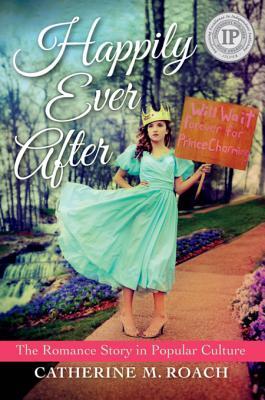
Happily Ever After
The Romance Story in Popular Culture
کتاب های مرتبط
- اطلاعات
- نقد و بررسی
- دیدگاه کاربران
نقد و بررسی

January 11, 2016
Roach (Stripping, Sex, and Popular Culture) looks at romance as “the prime cultural narrative of the modern Western world,” but quickly narrows her focus to a study of romance fiction, in part to explain her own fascination with the genre. The first third of the book establishes Roach as a “critical engagée” with the questions raised by these books, and later chapters focus on her alternate career as published romance author Catherine LaRoche (Knight of Love)—an experiment in hands-on research that turned out to be a “bucket of fun.” The chapters that address the themes of romance fiction are light on analysis of contemporary books but heavy on defending the genre against claims that it lacks realism and diversity. Roach explores the central conundrums of the romance novel as both “deep truth and wish-fulfilling illusion,” resolving “the problem of female desire in a patriarchal world” by imagining conclusions “where women are whole, safe, loved, sexually fulfilled, respected, in control of their choices, and happy.” Her generous affection for the genre takes the teeth out of her hard critical questions, but Roach’s attempt to do emotional justice to the genre should satisfy academics and fans alike.

July 2, 2012
Beginning with the premise that "Romantic agony⦠has changed its content, color, and texture" over the years, Illouz, a professor of sociology at the Hebrew University in Jerusalem, offers a complex look at the transformation of love, sex, and marriage in modernity. Comparing historic courtship and marriage rituals with contemporary dating culture, Illouz demonstrates the ways in which our increased freedom has complicated the search for a mate or partner. She details the emergence of the "sexual field," social arenas where sexual desire and competition are at the forefront and where people evaluate one another incessantly. She also addresses the stereotype of the commitment-phobic man, rejecting the determinist notion "that men have deficient psyches," or that "evolution demands men spread their sperm." Instead, Illouz urges readers to examine the social and cultural reasons for ostensibly innate behavioral tendencies. The end result, Illouz argues, is that we suffer differently in the modern age, precisely because our sense of self-worth is inexorably tied to love (and desire). An academic through-and-through, Illouz is nevertheless as comfortable referencing Kierkegaard as she is Bridget Jones. But her argumentsâriveting as they may beâstill require perseverance to work through. As a result, much of the wisdom here will be lost on the average reader.

























دیدگاه کاربران